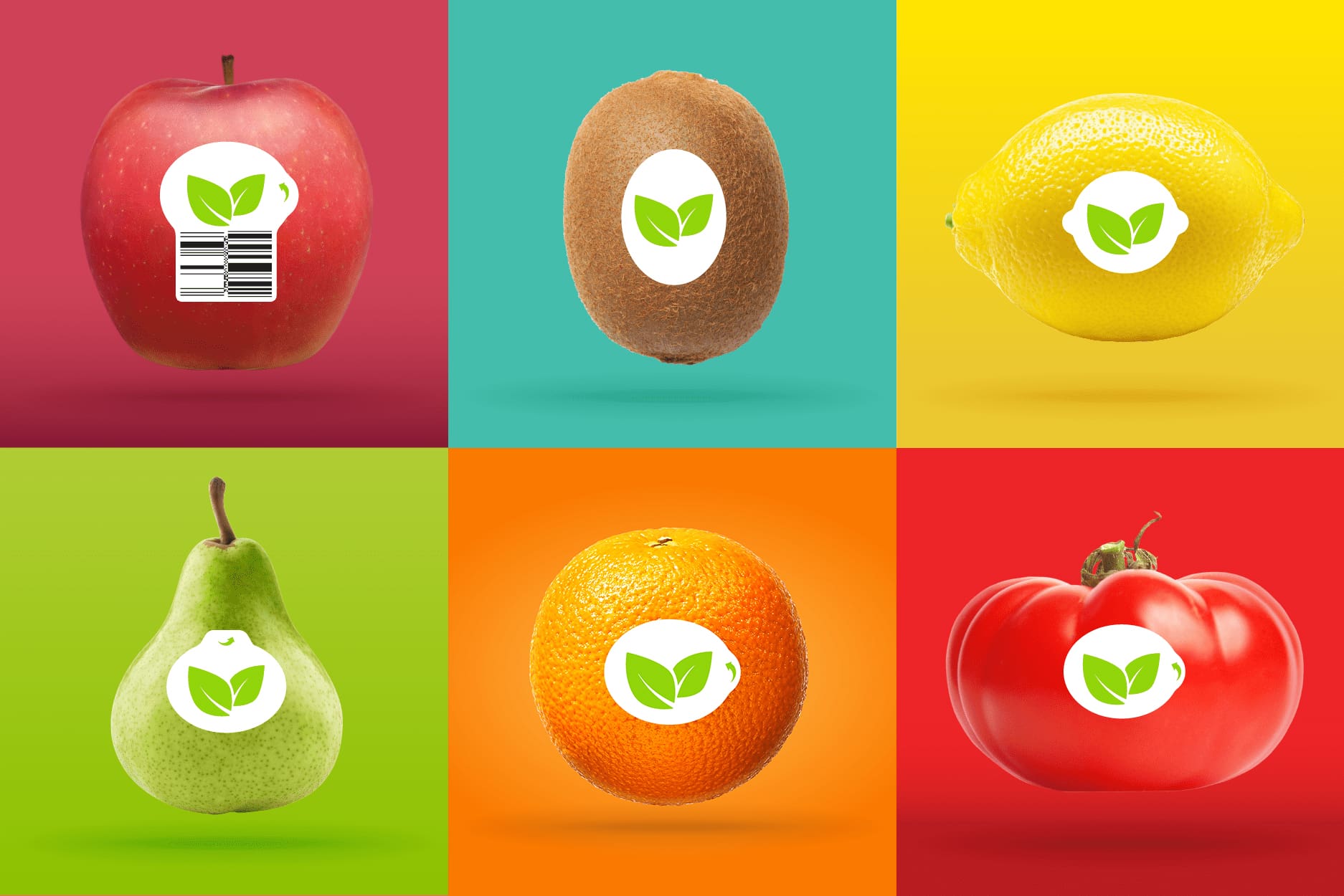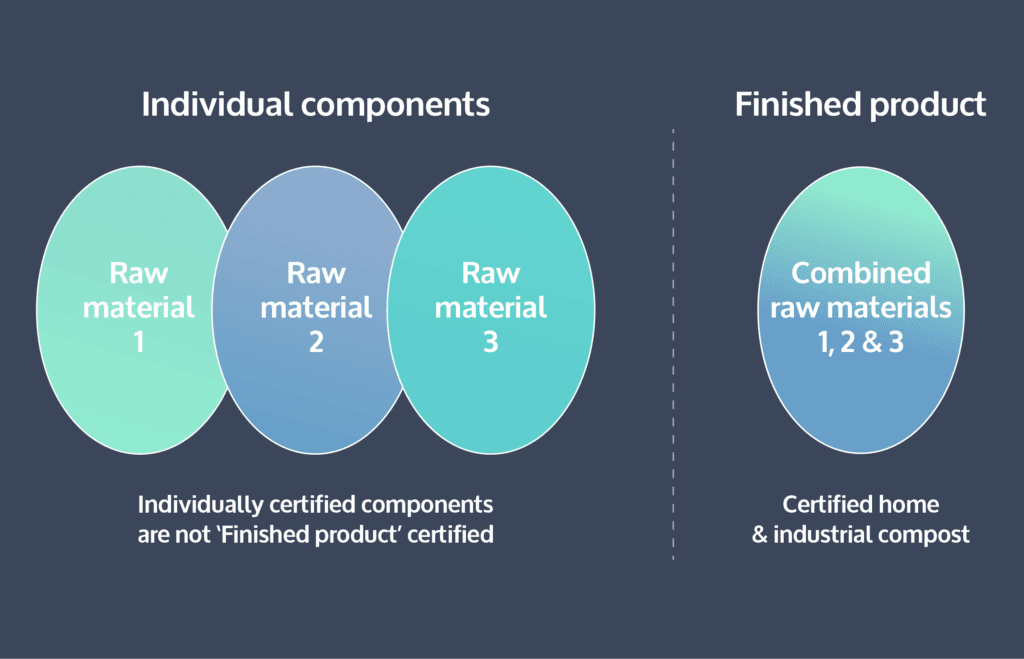Finished product certification vs Individual component certification

The Sinclair – T55 fruit label carries four recognised compost certifications, ensuring our customers can showcase compliance, quality as well as their environmentally conscious packaging choice.
Some of the terminology around product certifications is confusing so we want to simplify it for you. Below, we explain the difference between ‘Finished Products’ and ‘Intermediate Component’ certification.
‘Finished products’ certification
To explain we use a fictitious ‘Product A’ that is made up of 3 raw materials. In the manufacturing process materials 1, 2, and 3 are combined to create a finished product. To ensure it’s environmentally safe to dispose of at end of life the product is independently tested, and the test results verified by the certifying body. Upon successful verification the finished product can be certified as suitable for home or industrial (or both) to demonstrate compliance with specific composting standards, regulations, or market legislative requirements.

Individual component certification
Continuing with the example of ‘Product A’, which is made from 3 raw materials, It is possible to have each material – 1,2,3 – separately certified prior to the manufacturing process. It is also possible to certify a combination of raw materials, (perhaps 1+2) commonly known as an “intermediate component”.
However, relying only on combining certified raw materials or intermediate components will mean that the finished product has not been proven to meet the certification requirements as a whole construction.
Therefore, if the certification is not “finished product” the environmental impact of ‘Product A’ cannot be rigorously assessed as it has not been completely tested and verified as safe to compost.
If each component is certified compostable, when combined to create a new product construction, it does not automatically mean they will all behave the same way in the composting process as when they were separate components. Combining or “stacking” components in layers can inhibit or change the composting performance. In the case that certified components are combined without final product testing. This could potentially result in visible contamination in the composting process or may slow down degradation, causing the final product to take too long to break down and decompose and risk visible contamination, or even microplastics in the environment.
Conclusion
‘Finished Products’, “intermediate materials” and ‘Components’ certifications use the same testing and verification methodology, but ‘Finished Products’ certification is considered the ‘Gold Standard’. It clearly demonstrates that no part of a finished product has an adverse environmental impact in the composting process.
For Sinclair – T55, successful ‘Finished Products’ certification:
- demonstrates that no part of the fruit label adversely impacts the environment in the composting process
- simplifies label inventory and import/export requirements with dual HOME and INDUSTRIAL certification
- is the environmentally conscious choice for the future of fruit labeling
- provides trust to our customers, retailers and the consumers
- demonstrates compliance with internationally recognised composting standards AS 5810, EN13432 and NFT 51-800
We continue to work to support awareness and understanding of certified compostable products and their benefits. If you have a question, contact us!
Discover our certified compostable products

